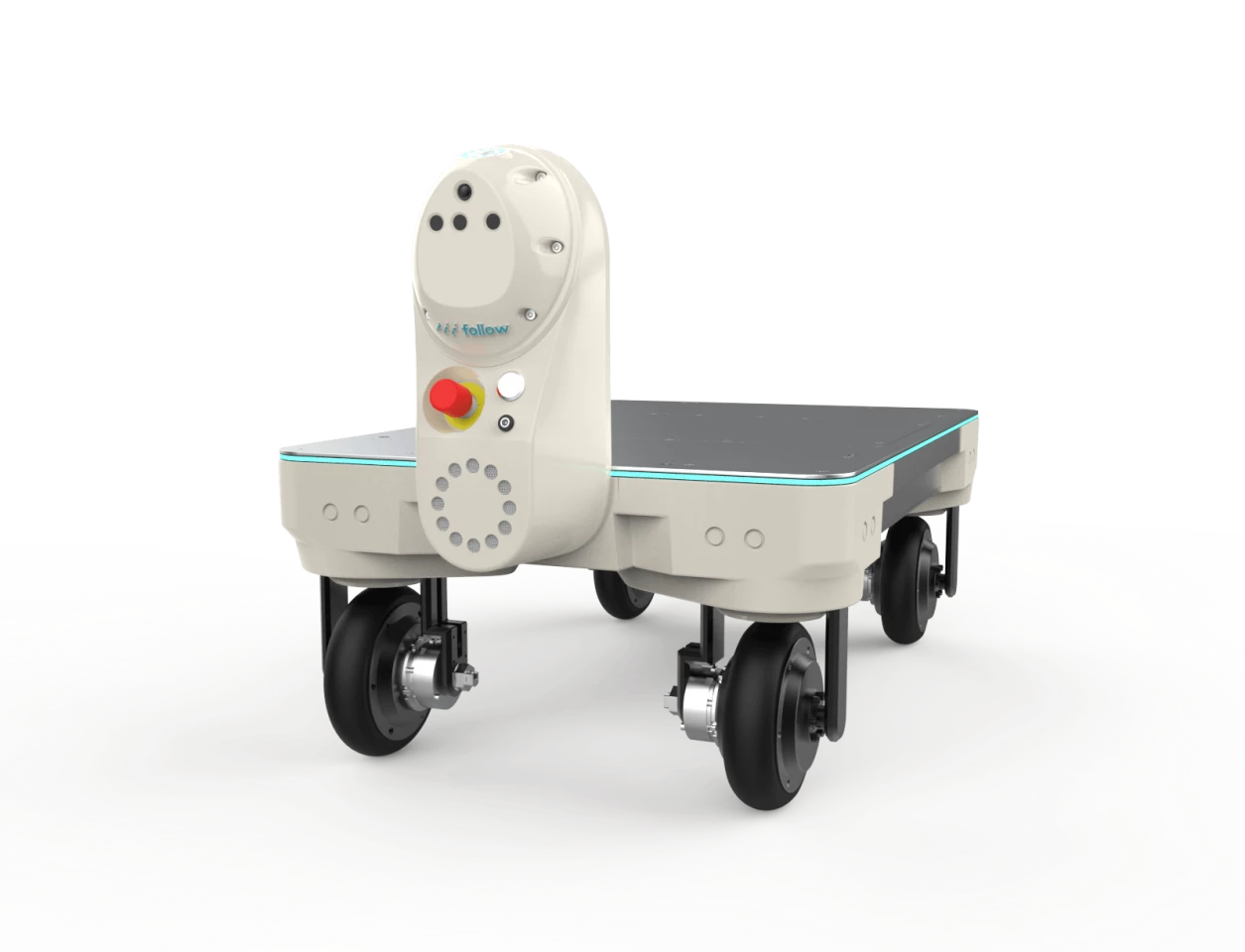The Piaggio Group's Fast Forward innovation lab has launched a self-follow rolling flat-bed robot at the Modex trade show in Atlanta. The company says that the Kilo platform is aimed at helping businesses to "augment their workforce and enhance worker safety."
Piaggio is probably best known for its tilting three-wheel scooters and iconic Vespa line, but in late 2015 the company launched a new initiative in the US "to develop a new approach to research with the aim of interpreting the signs of change and finding intelligent solutions to the problems raised by change and the needs of the future."
After settling into its stride over the next couple of years, this Fast Forward spin-out revealed its first product in 2017, a self-balancing wheeled cargo carrier called Gita that used a bunch of sensors to lock onto its user and follow behind. While this might sound like a harassment lawsuit in the making, the bot essentially serves as a futuristic shopping cart to help folks haul their goods home.
If its 40-lb (18-kg) capacity wasn't enough to meet the grocery needs of a growing family, the Piaggio Fast Forward (PFF) team also revealed a three-wheeled "big brother" called Kilo that featured a 120-liter compartment and was rated to carry up to 220 lb (100 kg).

While the Gita bot got a release date in 2019 for over US$3k – and was even joined by a $1,850 baby sister in 2021 – further development details on the Kilo version were not forthcoming. It seems that the name will live on though, as PFF makes inroads into the business world with a four-wheeled platform featuring "smart follow" tech that's designed to lug boxes around a warehouse or fulfillment center.
Where humanoid robots might be coming for our jobs, PFF stresses that Kilo bots are designed to "work alongside humans, enabling users to move materials naturally and reducing the risk of injury." Though once manual labor tasks within a facility are being undertaken solely by robots, presumably Kilo's loyalties would quickly change to new masters.
The new business bot makes use of the same sensor suite and 4D radar tech as the Gita models, working "right out of the box with the push of a button" to follow a human operative while carrying boxes or pallets placed on its flat-bed back.
That 32 x 22-inch (81 x 56-cm) platform can handle a maximum payload of 300 lb (136 kg), features eight mounting points and can be fitted with business-specific carts or shelving to better suit the needs of particular tasks.

Kilo has reportedly been optimized for detecting and predicting human behavior, rolls along at walking speed (3 mph) courtesy of four motorized wheels, and can manage gradients up to 5 degrees. It has a per-charge run time of up to 10 hours, after which it will need to plug in for 3 hours. A convoy of flat-bed bots can be set in motion when necessary, with the lead Kilo following its human master and the trailing bots following the lead and each other at a safe distance.
The new robot also benefits from the debut of PFF's Travel on Known Paths autonomous behavior software – allowing it to move around autonomously or follow set routes. Its onboard memory is able to store more than a hundred paths. The sensors continuously scan the surroundings to generate a 3D map of the facility, allowing the robot to safely navigate dynamic environments without requiring modifications to infrastructure. And a pro tools mobile app allows for fleet management, employee access, usage history and firmware updates.
"From manufacturing to any industry that relies on the repetitive movement of goods across campuses and production facilities, PFF’s autonomous technology allows our robots to safely move with and around workers in complex environments, streamlining workflows and increasing productivity," said PFF CEO, Greg Lynn.
The Piaggio Group reports that the Kilo platform will get its first taste of real-world work when fellow Italian mobility company Moto Guzzi employs a few to help on new production lines. Piaggio is also planning to roll out the follow-me robotic flat bed to its own production facilities in Italy, India, Vietnam and Indonesia.
Source: The Piaggio Group







